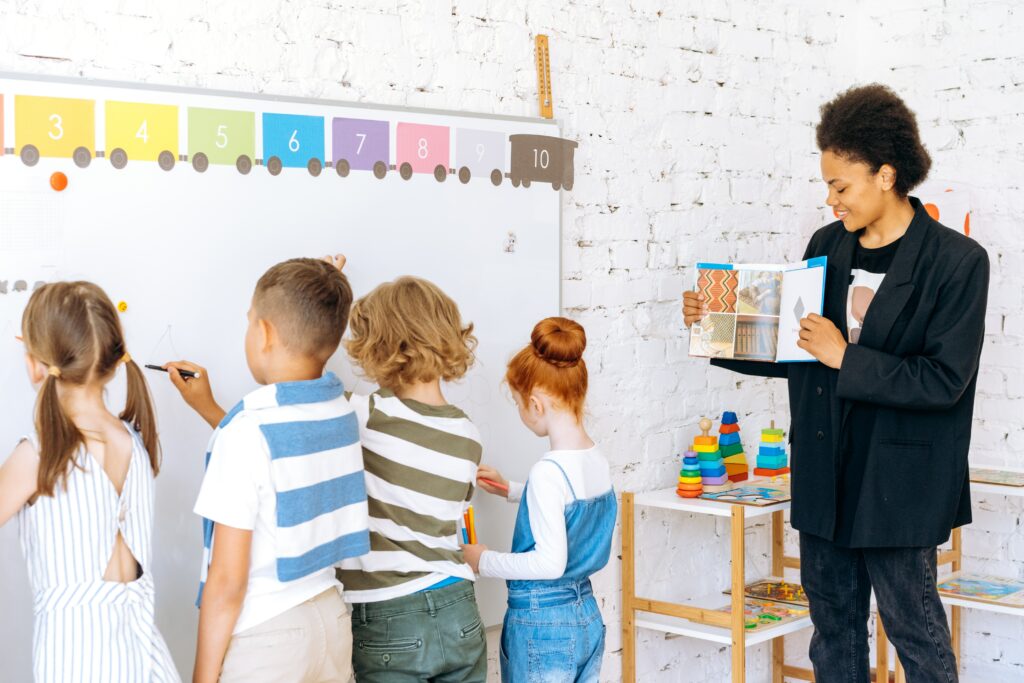The first question posed was do we need to reimagine education? When talking with my learning pod and reflecting on past courses, it became clear to me that education is constantly being reimagined. Thinking about all the times the BC curriculum has changed in the past, there seems be a back and forth between back to basics and progressive education (this article discusses some of the recent curriculum changes https://ur.booksc.eu/book/51008454/0b20f ). I think to prepare students for an unknown future, it is great that BC is currently taking the progressive approach. I think memorization should no longer be a big part of education. From my experience I tended to learn content for a test and then forget it soon after. This kind of learning is not useful for a future where we have unlimited access to information, we instead need to learn how to think critically and apply information.

When education is reimagined, educators then need to change their pedagogy to fit the new curriculum but may have trouble doing so. As a learning pod we discussed obstacles teachers face when changing pedagogy, I took their thoughts and my own thoughts into consideration for when teachers may struggle to change their pedagogy. For example a teacher may not agree with the new curriculum or they may be close to retirement so they do not want to put in the work to change their teaching strategy. Other times changing your pedagogy can be overwhelming, especially in BC where there is so much freedom in the new curriculum it may be hard to know where to start. Another practical reason is that teachers may lack resources. Teachers should not be expected to pay out of pocket for technology, books, or learning packs to support their new pedagogy and sometimes schools may not have a large budget to accommodate shifting pedagogies.
A great support for new educators or educators changing pedagogy is Creative Commons. Throughout my teaching education I often hear things like “don’t reinvent the wheel” or “work smarter not harder” which places an emphasis on finding lesson plans or ideas from others and adapting them to suit your needs. The idea of Creative Commons is wonderful because it is a collaborative environment where educators share their work so that other educators may use it with their students. Education has always been collaborative but now you can step outside of collaborating with your school community and collaborate with people all over the country. I think education should be to benefit and support all students and Creative Commons allow you to share your work so that educators can focus more on supporting their students instead of spending large amounts of time writing lesson plans. Creative Commons are also quite accessible because they are free to use and all you need is a computer and internet to access it. However, you do need to be careful as a lot of resources come from the United States or other provinces so it is unlikely you can pull something from Creative Commons and use it without any kind of adaption for your school district.
26 January 2022 at 3:02 pm
Hi Kasey,
I think you did a great job discussing these questions and covering what we discussed in our learning pod. I like how you also considered the advice we keep receiving about not re-inventing the wheel, but also considering that education does change. This just shows that change doesn’t always have to be a total transformation and that it can be simply improving or modifying what we are already working with. Thanks for your contributions to our learning pod and I am looking forward to this weeks discussion.
-Lucy
27 January 2022 at 12:55 am
Hello, Kasey.
We referenced the same book when discussing this issue! Text-to-text (or -world?) connections for us, Expanding all around. It is an important consideration when looking at changes in education, and it is something that seemed lacking from the film we watched.
I like the, ah, refreshingly different take on diverse representation evinced by the image you used. Often pictures of groups of young students will go out of their way to get a rainbow of ethnicities among the children… but the teacher is too often white. Nice to see a reversal–we need images like this, too.
I wonder if you could expand a little on what sort of adaptations might be needed when drawing on Creative Commons materials from outside the province or nation? I confess my own awareness of Creative Commons mostly concerns images, while your are speaking of lesson plans, so that may be what is throwing me off, but which sort of adaptation do you predict may be necessary?
27 January 2022 at 7:12 pm
Hi Emmanuel,
For the Creative Commons I was thinking about it from a teaching perspective so thinking about lesson plans and activities other teachers may have shared. I was reflecting on the fact that there are a lot of different curriculums throughout Canada and the United Sates so if the resources come from somewhere other than British Columbia they likely will not be a perfect fit. For example, the lesson plans are sometimes grouped based on standards from the United States which are not something we use in British Columbia. Sometimes adaptations will be needed so resources from Creative Commons will work with our curricular competencies and content. Hope that gives you a little more insight on what I was thinking about.